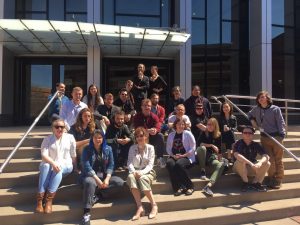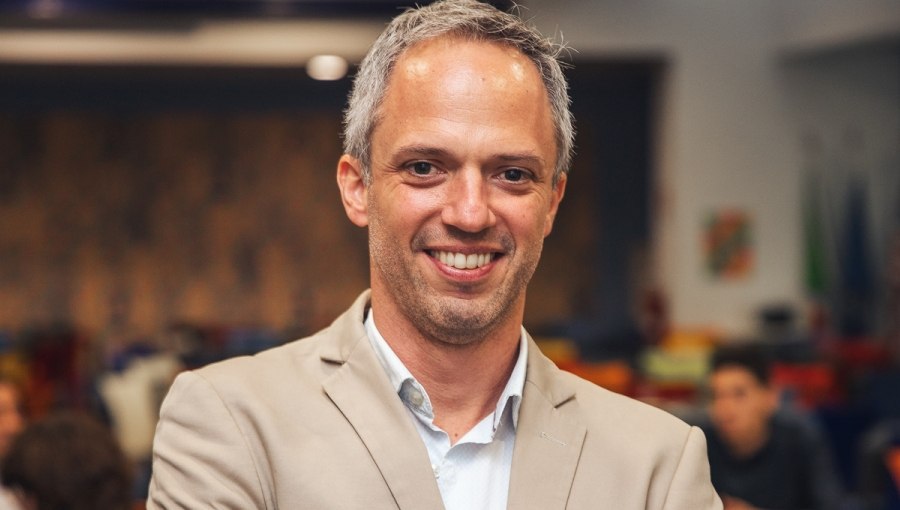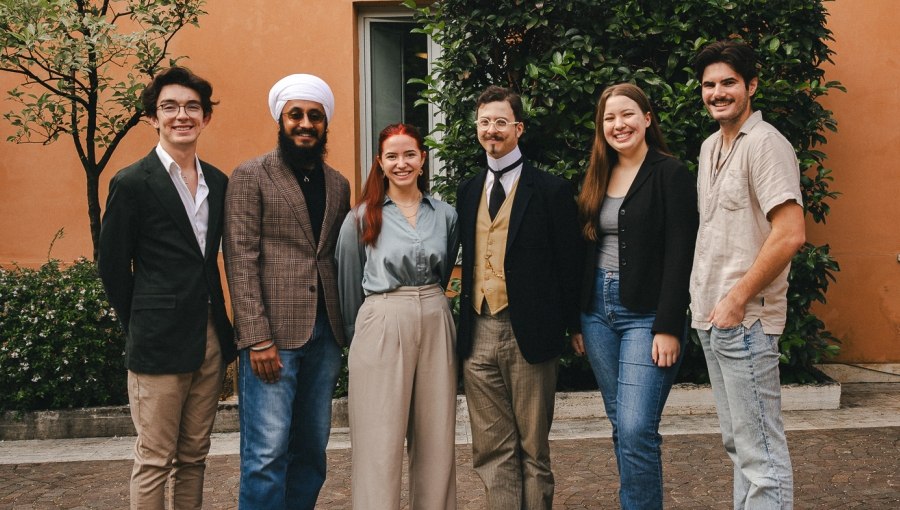On Monstrous Mothers: Communications Student Sabrina Mancini
Sabrina Mancini is a senior from Rome. She studies Communications with a minor in Psychology. During her time at JCU, Sabrina has collaborated with Grassroots and designed the club’s informational brochure. She recently presented her paper “We Need to Talk About Carrie: On Monstrous Mothers and High School Massacres” at the Undergraduate Conference of the Society of Cinema and Media Studies at the University of Minnesota.
How did you decide to apply to JCU?
I went to an Italian high school where I studied languages, and one of my biggest dreams was to study in an international environment in order to make the most of what I had learned. JCU gave me the opportunity to do this while building my own academic path, thus making my experience the best I could ever wish for.
Why did you choose to study Communications?
I’ve always been an introvert and I have never been keen on speaking up. However, I have always had a creative mind and I realized that being shy and introverted does not mean having nothing to say. I found my calling in the fascinating world of visual communication, where much can be expressed, sometimes without even saying a word. As a kid I was fascinated with paintings and I would spend hours either flicking through books and interpreting images, creating stories in my head, or drawing and painting. As I grew up, I realized I was getting more and more attracted to the world of graphic design and its striking power of communicating messages and values visually. At that point, it was clear to me that what I wanted to do was to explore and dig into all possible forms of communication.
What are your career plans?
My biggest aspiration is to gain experience in the field of graphic design and to become an editorial art director and graphic designer. I am planning to continue my studies in visual communication and focus on either corporate or editorial design.
What are the benefits of studying Communications in this day and age?
In this fast-paced, information-saturated world we are constantly being exposed to an overwhelming amount of information and news, and it can be so easy to be misled. 21st-century communication is becoming more and more democratic, meaning that everyone can have a say, unfortunately sometimes at the expense of truth. This is precisely why it is pivotal to study Communications, to become aware of its mechanisms in order to become active producers and consumers of information, to learn how to analyze and engage with the media we are presented with and not just to superficially and passively accept it.

Sabrina Mancini (top row, third from left) and the other participants in the Undergraduate Conference of the Society of Cinema and Media Studies
Congratulations on your participation in the Undergraduate Conference of the Society of Cinema and Media Studies. Can you tell us more about the paper you presented?
Thank you so much. My paper is based on a previous essay I had written in Spring 2016 for the Introduction to Cinema course taught by Professor Tijana Mamula. Originally, the essay was a comparative analysis of two horror movies, Carrie (Brian De Palma, 1976) and We Need to Talk About Kevin (Lynne Ramsay, 2011). The two films share a similar plot, a teenager committing a high school massacre, and the cause that triggered the protagonists’ insane actions: the troubled relationship with their mothers. My analysis focused primarily on how the movies challenge the idealized conception of the mother by looking at the formal construction of both films. I then implemented my research by pointing out how the two movies are historically and contextually distant and yet use the same mother-blaming narrative as the explanation for a high school massacre. Since Ramsay moves away from the politicized and socially-motivated depiction of high school massacres that have dominated our screens since the 1999 Columbine shootings, I thought it was worth analyzing what this narrative choice entails from a post-feminist standpoint and what it says about the evaluation and consequent representation of mothers.
Why did you choose this topic for your paper?
At first, I was mostly interested in the role of horror as a genre, in the way it exposes the audience to taboo topics that we do not like to be faced with, such as the uncomfortable reality of unwanted pregnancies and unloving mothers. As I said, my research evolved into something more complex and contextualized to our contemporary social and cultural background. We are living in the post-feminist era, characterized by the belief that equality has been more or less achieved and feminism therefore superseded. The post-feminist canon presupposes a perfect, “do-it all, has-it-all” never complaining, emancipated woman, which is nothing more than a new form of self-imposed patriarchy. This idealized conception of the woman results in an unrealistic scale on which we evaluate “good enough” mothering that leaves behind whoever does not fit the requisite. Needless to say, the post-feminist canon is mirrored by cinematic representations of mothers, and more broadly of women, but goes unnoticed in the way it insinuates itself as normative. Since it has now become common, both on our screens and in real life, we should be wary and learn to recognize this subtle but dangerous process.
How was your experience at the conference?
Being part of the U-SCMS Conference was an amazing experience that shaped both my personal and academic growth. The conference was organized in thematic panels, three presentations for each, and I was part of the “Horror” panel. I met some great and passionate peers from all over the world, who made the whole experience all the more fun and motivating. I also had the opportunity to talk to professors and scholars who showed great interest in my paper. What stood out to me the most was the very high level and competence of the participants, who all proposed interesting and inspiring papers. All in all, it was a unique and memorable experience that gave me a taste of what the world of media scholars looks like.
Is there anything you would like to add?
I just want to say that I am so very grateful and honored that I was given the opportunity to be part of this prestigious conference, which would not have been possible without the help and encouragement of Professor Mamula. It was such a rewarding experience and an example of the opportunities that studying in an international university like JCU offers. Finally, I want to encourage my fellow students to step out of their comfort zone, to open up to new experiences and to seize all kinds of opportunities because a simple paper or project might unexpectedly turn out to be a one of a kind chance.






